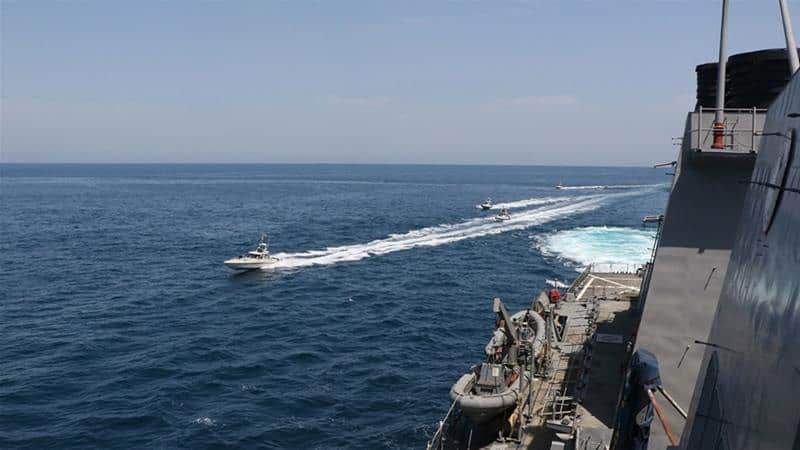Eyeing Iran, US warns to stay 100 metres away from its warships

In an alert that appeared aimed squarely at Iran, the United States Navy issued a warning on Tuesday to mariners in the Gulf to stay 100 metres (109 yards) away from US warships or risk being "interpreted as a threat and subject to lawful defensive measures".
The notice to mariners, which was first reported by Reuters News Agency, follows US President Donald Trump's threat last month to fire on any Iranian ships that harass Navy vessels.
"Armed vessels approaching within 100 meters of a US naval vessel may be interpreted as a threat," according to the text of the notice.
A US official, speaking on condition of anonymity, said the new notice to mariners was not a change in the US military's rules of engagement.
The Pentagon has stated that Trump's threat was meant to underscore the Navy's right to self-defence.
The Bahrain-based US Naval Forces Central Command said in a statement that its notice was "designed to enhance safety, minimize ambiguity and reduce the risk of miscalculation".
It follows an incident last month in which 11 Iranian vessels came close to US Navy and Coast Guard ships in the Gulf, in what the US military called "dangerous and provocative" behaviour.
At one point, the Iranian vessels came within 10 yards (nine metres) of the US Coast Guard cutter Maui, the US military said.
Trump's threat followed that incident, which Tehran, in turn, said was the fault of the US.
The head of Iran's elite Revolutionary Guard responded to Trump by threatening to destroy US warships if its security is threatened in the Gulf.
The back-and-forth is just latest example of razor-sharp tension between Washington and Tehran, which has steadily escalated since 2018, when Trump withdrew from Iran's 2015 nuclear deal with six world powers and reimposed crippling sanctions.
Animosity reached historic heights in early January, when the US killed top Iranian military commander Qassem Soleimani in a drone strike in Baghdad.
Iran retaliated on January 9 by firing missiles at bases in Iraq, causing brain injuries among US troops at one of them.
Close interactions with Iranian military vessels were not uncommon in 2016 and 2017. On several occasions, US Navy ships fired warning shots at Iranian vessels when they got too close. But Iran had halted such manoeuvres before the April incident.
Photo: Iranian Islamic Revolutionary Guard Corps Navy (IRGCN) vessels crossing the bows and sterns of US military ships at close range while operating in the Gulf [Handout/US Navy]











